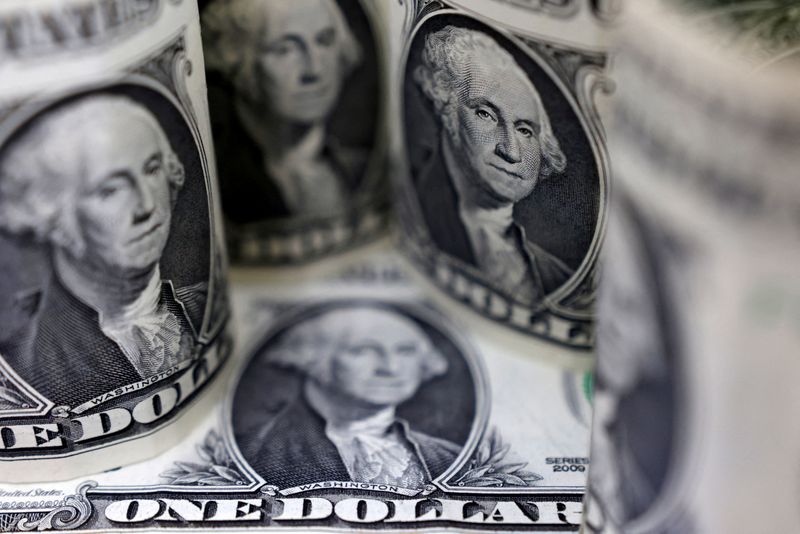By Harry Robertson
LONDON (Reuters) - The dollar slipped on Friday as investors awaited the latest U.S. jobs figures, after jumping in the previous session following a raft of central bank decisions.
The U.S. currency dipped against the euro, reversing earlier gains. The euro was last up 0.17% to $1.093, remaining far above September's 20-year low of $0.953.
The Federal Reserve's Open Market Committee (FOMC) on Wednesday raised interest rates by 25 basis points to a range of 4.5% to 4.75%, a softer approach than the previous increase of 50 bps.
The slowdown in the pace, and comments from the central bank, helped send the dollar tumbling as traders hoped rate hikes might soon end altogether.
Yet it then rallied sharply as the euro dropped on Thursday when the European Central Bank raised rates by 50 bps to 2.5%, but suggested that it could be finished after another increase in March.
"Essentially we have retraced everything before the FOMC meeting," said Alvin Tan, head of Asia FX strategy at RBC (TSX:RY) Capital Markets.
"If you step back, in the days before the FOMC the dollar was weakening," he said. "Broadly speaking the dollar remains under pressure."
Strategists at ING said the euro's pick-up in morning trading in Europe could have been driven by the rebound in euro zone bond yields on Friday after a sharp fall on Thursday.
HSBC said comments by ECB official Peter Kazimir, who said the central bank is likely to raise rates again after March, were also likely boosting the currency.
Graphic: Euro vs. dollar https://fingfx.thomsonreuters.com/gfx/mkt/egpbyaooavq/Screenshot%202023-02-03%20083709.png
The dollar index, which tracks the currency against major peers, was down 0.22% to 101.57 on Friday.
Japan's yen was 0.2% higher against the dollar at 128.42 per dollar.
The big event for markets on Friday is the release of U.S. employment - or nonfarm payroll - numbers at 8.30 a.m. ET (1330 GMT).
Economists polled by Reuters expect the U.S. economy to have added 185,000 jobs in January, a strong showing, but down from 223,000 in December. Wages data is also due.
The pound reversed an earlier fall and rose 0.29% on Friday to $1.226, after tumbling 1.2% on Thursday when the Bank of England raised interest rates but stressed that inflation was showing signs of relenting.
The Australian dollar was 0.21% lower at $0.706. Meanwhile, the U.S. dollar was up 0.27% against its Canadian counterpart at C$1.335.

James Malcolm, head of FX strategy at UBS, said the dollar has "turned in a pretty big way" and that he expects its fall to continue in the coming months. The dollar index has dropped more than 11% since hitting a 20-year high of 114.78 in September.
"The ECB is still relatively hawkish compared to the Fed, so all of those things could play out in some pretty sharp dollar weakness," he said.